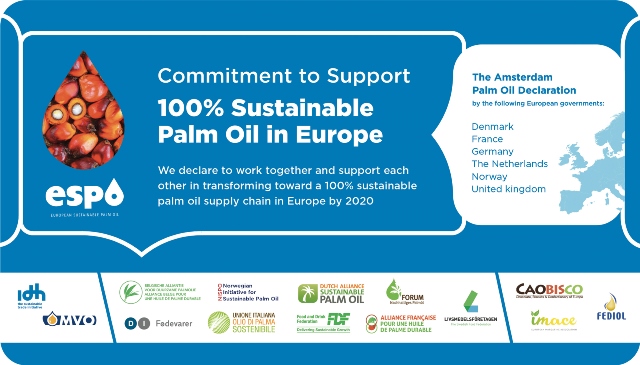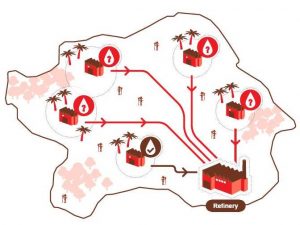To accommodate the growing demand for palm oil, production needs to increase crucially without harming the environment. Several of the world’s largest palm oil users and producers have committed to using only deforestation-free, traceable, sustainable palm oil.
IDH builds coalitions within the industry to transform these aspirations into workable solutions, supported by a sound business case. IDH’s Palm Oil Program supports improvements in palm oil sustainability through several workstreams implemented at scale.
IDH convenes the industry in the Traceability Working Group (TWG). The TWG will find a common definition for traceability and develop a roadmap for the steps needed to increase understanding on the flow of palm oil products on existing land and transparently link to supply sheds. This will allow companies to ensure that they are sourcing responsibly (for example that their supply chain is deforestation-free), and to identify areas where improvement and support is needed, such as increasing the productivity and sustainability practices of farmers.
IDH contributes in developments and support investments in smallholder inclusion in targeted supply sheds. This will help smallholders to become organized, increase their productivity, use better production practices, access working capital and investment finance, and improve their livelihoods. This should expand market access, reduce pressure to expand into forests and allow smallholders to become compliant with the responsible sourcing policies of buyers (through robust monitoring).
Through partnerships with manufacturers and refiners, IDH is also working to support improved sustainability amongst third-party suppliers such as small and medium-size oil palm growers and millers. This includes work to support improved productivity and efficiency in return for on- and off-plantation forest conservation, restoration and management, community development and engagement and peatland best practice.
As part of its work to drive sector-level change IDH also supports industry level initiatives and best practice that can be applied across multiple landscapes. For example, IDH supported the high carbon stock (HCS) study; HCS Study-HCS Approach convergence work; palm oil risk assessment tools and peatland management best practice for smallholders and other relevant industry level studies and initiatives.


